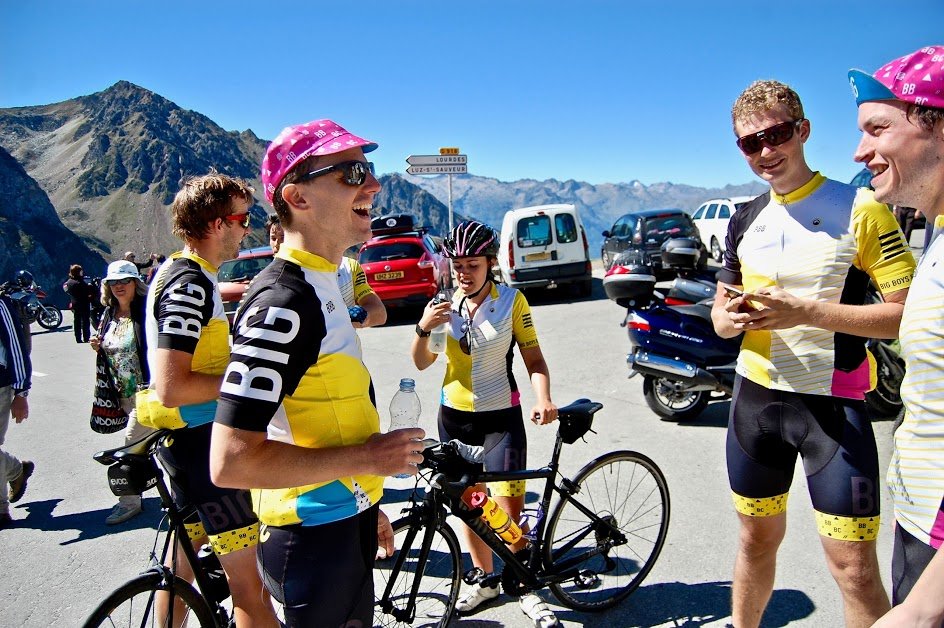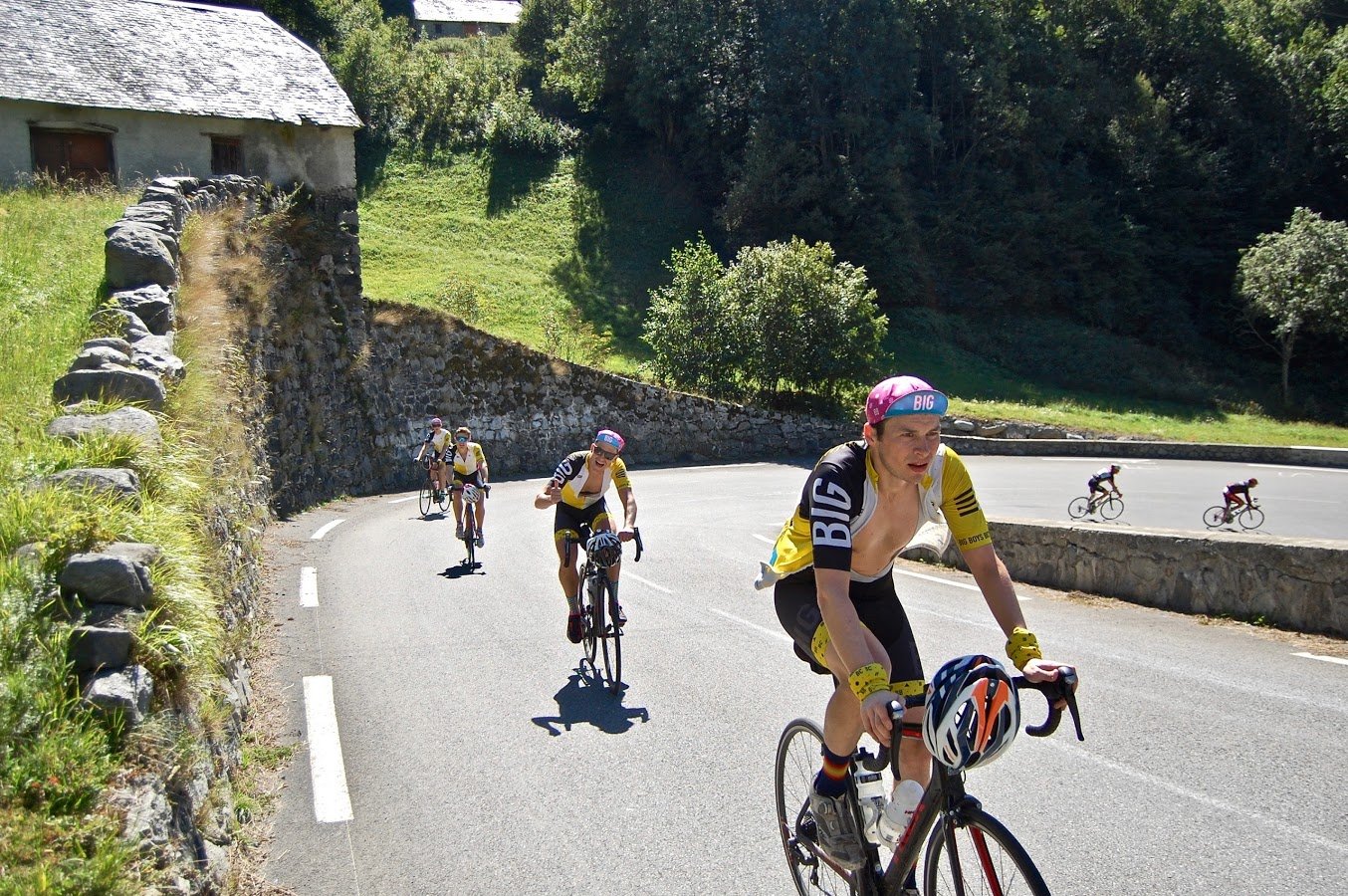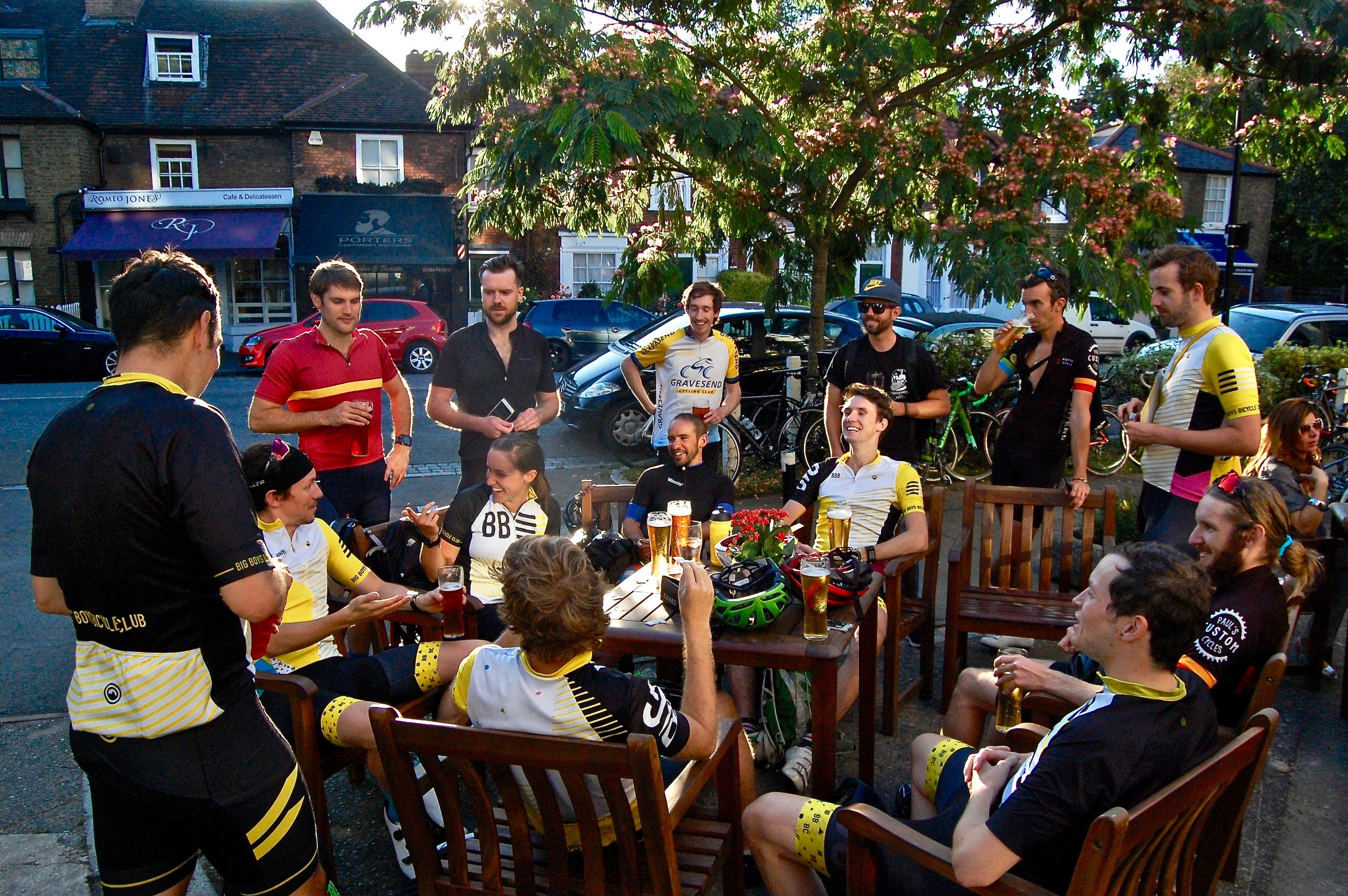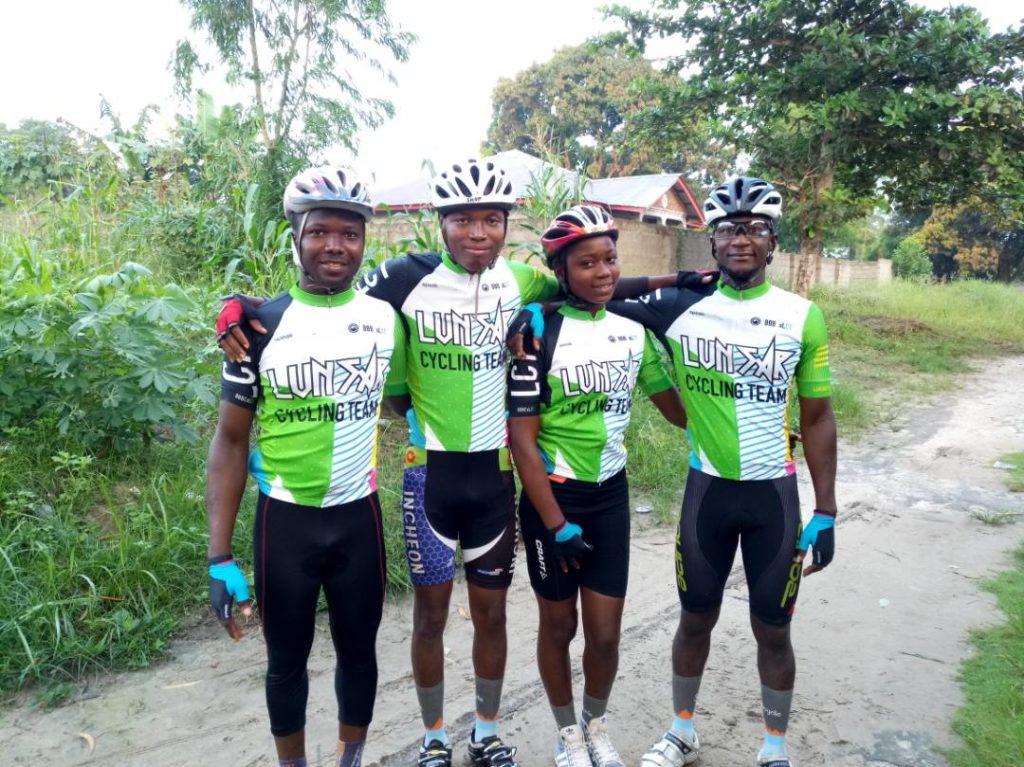Tom Owen, the founder of the London-based ride crew Big Boys Bicycle Club, tells us why and how to start a cycling club.

Big Boys Bicycle Club (BBBC) was founded in London in 2013 by a small group of friends who fell into cycling, drunk on the euphoria of London in 2012, after finding they couldn’t fit other sports into their new post-university lifestyles. It grew steadily, and we now have more than 100 members, with satellite ‘chapters’ in Cambridge, Sydney, Amman and Cape Town.
If you’re thinking of starting a club, I say do it, but first, let’s talk about why you want to start one. Maybe you’ve tried a few existing clubs but found them impersonal, elitist or just too damn slow for your mad skills. Maybe there are no clubs at all where you live. Maybe you just love doing unpaid admin on behalf of a bunch of lycra-clad ingrates!
Whatever your reason, there are a few steps I’d recommend you follow on your way to building a successful club.

Build a routine
Having some sort of regular ride in the diary should give you something to start building your cycling club. For example, you should find at least a handful of members of BBBC in Regents Park in central London every Wednesday night after work. This Wednesday laps ride has existed since 2013, and we’ve only missed about ten weeks (most of those have fallen in the gap between Christmas and New Year).
A weekly ride might not work for you, and you may find it more convenient to commit to something at the weekend rather than post-work. Remember, as a founder, you will have to commit to whatever ride this is. I spent a fair few Wednesday nights in the early days just lapping solo.
Call it what you want
If you ask me, calling your cycling club [Place Name], + Cycling Club is a massive missed opportunity. Use your imagination, and pick something that captures the spirit of who you want to be as a club. You must have something more interesting to say about yourselves than the fact you’re mainly based in and around Rochdale, right?
Fun fact. Big Boys Bicycle Club is one of two London cycling clubs with a name originally given to them by the disgruntled partner of one of its founder members. ‘Kiddy Mates on Toy Bikes’ is the other.
Time to get kitted up
Some clubs have had the same kit design for nearly 100 years. That seems like 99 missed opportunities to me. Be brave, be bold, and don’t cheap out by ordering a custom cycling kit from an office supplies company like we did when we got our first set of threads. Let’s just say those bib shorts were ‘unanatomical’ and leave it at that.
The age of club kit being something worn under sufferance are (or should be) long gone. Use a good quality supplier who knows about cycling like Milltag, and you might find that the club kit becomes the favourite set in your members’ lycra closet.
Get out there and make friends
The best marketing you can do for your cycling club is to ride as much as possible. Get the jersey seen out there in the world, and ensure you always comport yourself with the appropriate dignity and gravitas. If you must act like a yob, ensure your jersey is covered up!

We’ve found that most of our growth has been organic, either with existing members recruiting their friends or people who’ve been looking for a club (but are turned off by the sometimes unfriendly outward persona of bigger clubs) who meet our riders out on the road and find them to be nice people.
Go on adventures
Trips are what make cycling fun, right? After all, there are only so many times you can ride that regular weekly route before things go a little stale. In the last 18 months, BBBC has been to Majorca, the Pyrenees, the Alps, the Lake District and even a small youth hostel near Merthyr Tydfil. It doesn’t get more glamorous than that, folks.
Going away together will open up a world of possibilities and some healthy competition for who can set the best time up the Tourmalet.
Do events
Once you get to a certain size, organising events is something that’ll be expected of your cycling club. In fact, from personal experience, your members might find it difficult to enter races if your club is known as one that doesn’t really contribute to the overall calendar in your area. I found this out when I entered a stage race in Manchester, and nobody there had ever heard of BBBC.

It’s not just about quid pro quo, though. In the summer of this year, BBBC organised a series of guerrilla hill climb competitions around London to raise funds for Lunsar Cycling Team, a club in Sierra Leone. With the money raised from race entries and cake sales, we funded the West African country’s first-ever team kit, which reached them last week!